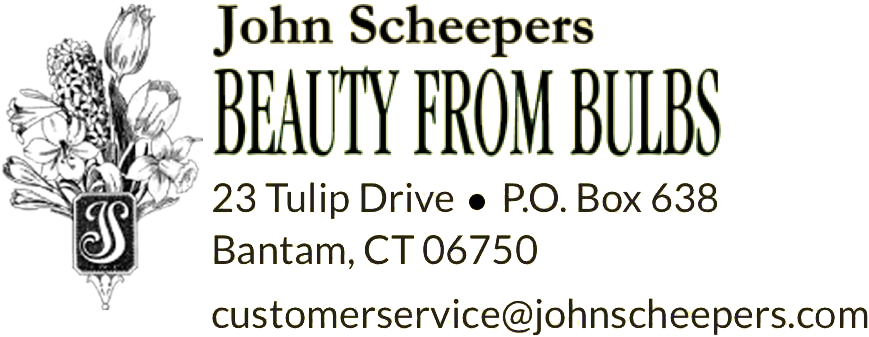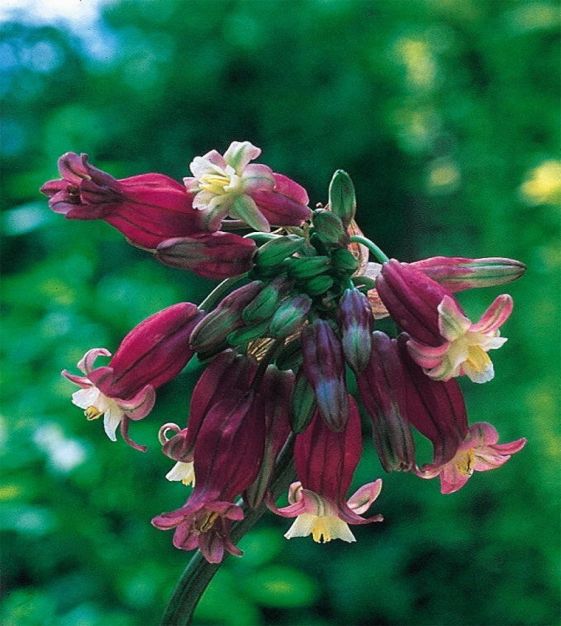-
- 20%-Off Website Specials
- New for 2024!
- Tulips
- Narcissi
- Allium
- Anemone blanda
- Brodiaea
- Camassia
- Chionodoxa
- Corydalis
- Crocus
- Eranthis
- Eremurus
- Erythronium
- Fritillaria
- Galanthus
- Geranium
- Gladiolus
- Hyacinths
- Hyacinthoides
- Ipheion uniflorum
- Dutch Iris
- Rock Garden Iris
- Ixiolirion
- Leucojum Aestivum
- Muscari
- Ornithogalum
- Oxalis
- Puschkinia
- Scilla
- Lilies
- Peonies
- Tender Bulbs
- Anemone Giants
- Tecolote Ranunculus
- Freesias
- Paperwhites
- Amaryllis
Brodiaea Pink Diamond
Also known as Dichelostemma Pink Diamond, this fabulous cut flower is best grown in moist, fertile, well-draining soil in full sun to partial sunlight (never shade) with winter and spring moisture and summer dryness. Pink Diamond has clusters of delicate, 1” tubular, raspberry-pink flowers with pale creamy-pink tips and grass-like foliage, and a growing habit similar to that of B. laxa coccinea.
Top size I corms. Full to partial sunlight. Bloom time in horticultural zone 5: May/June. Plant 4" deep and 3" to 4" apart. HZ: 6-9. Height: 24".
Brodiaeas are The Art & Soul of Spring.
Brodiaea Horticultural Tips Stinze Plantings
Brodiaeas are The Art & Soul of Spring.
Brodiaea Horticultural Tips Stinze Plantings
- Information
Brodiaea
Classified and reclassified under Brodiaea, Dichelostemma and Triteleia over time, Brodiaea is the classification that we’ve decided to stick with to avoid even more confusion. These deer-resistant naturalizers, circa 1800, were named after Scottish horticulturist James Brodie. Whatever one calls this genus, it is adored by the Dutch cut flower trade and is popularly incorporated into early summer bouquets.
Commonly referred to as Fool’s Onions, these 19th century heirlooms are native to California and are best grown in moist, fertile, well-draining soil with winter and spring moisture and summer dryness. Make sure that they’re never planted in a spot that gets waterlogged at any time. They require full to partial sunlight. Never shade.
A prized cut flower, Brodiaea has star-shaped or tubular flowers and grass-like foliage. It will naturalize readily if it’s happy where it’s planted and left undisturbed. Brodiaea naturalizes by corm offsets (called cormels: baby corms on the sides of the mother corm you’ve planted). It’s terrific planted en masse in sunny woodland borders, natural wild flower settings and rock gardens (that have moisture-retentive soil). Since it’s not tremendously hardy, you may want to apply no more than a 2" layer of mulch after the surface of the ground freezes to protect it from winter temperature spiking in the event of inconsistent snow coverage.
You’ll need nine corms per square foot. (Square footage is determined multiplying the planting site’s length times its width.) Top size. Full to partial sunlight. Bloom time in horticultural zone 5: May/June. Plant 4" deep and 3" to 4" apart. HZ: 6-9. Height: 14" to 24", depending on the variety.
Brodiaeas are The Art & Soul of Spring.
Brodiaea Horticultural Tips Stinze Plantings
Brodiaea
Classified and reclassified under Brodiaea, Dichelostemma and Triteleia over time, Brodiaea is the classification that we’ve decided to stick with to avoid even more confusion. These deer-resistant naturalizers, circa 1800, were named after Scottish horticulturist James Brodie. Whatever one calls this genus, it is adored by the Dutch cut flower trade and is popularly incorporated into early summer bouquets.
Commonly referred to as Fool’s Onions, these 19th century heirlooms are native to California and are best grown in moist, fertile, well-draining soil with winter and spring moisture and summer dryness. Make sure that they’re never planted in a spot that gets waterlogged at any time. They require full to partial sunlight. Never shade.
A prized cut flower, Brodiaea has star-shaped or tubular flowers and grass-like foliage. It will naturalize readily if it’s happy where it’s planted and left undisturbed. Brodiaea naturalizes by corm offsets (called cormels: baby corms on the sides of the mother corm you’ve planted). It’s terrific planted en masse in sunny woodland borders, natural wild flower settings and rock gardens (that have moisture-retentive soil). Since it’s not tremendously hardy, you may want to apply no more than a 2" layer of mulch after the surface of the ground freezes to protect it from winter temperature spiking in the event of inconsistent snow coverage.
You’ll need nine corms per square foot. (Square footage is determined multiplying the planting site’s length times its width.) Top size. Full to partial sunlight. Bloom time in horticultural zone 5: May/June. Plant 4" deep and 3" to 4" apart. HZ: 6-9. Height: 14" to 24", depending on the variety.
Brodiaeas are The Art & Soul of Spring.
Brodiaea Horticultural Tips Stinze Plantings





